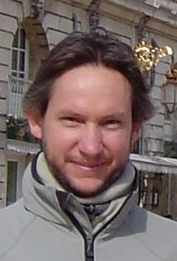First Steps in Hybrid Logics Faculty of Mathematics, Astronomy and Physics (FaMaF) These lectures introduce hybrid logics, a family of modal logics in which it is possible to name states (or times, or worlds, or situations, or nodes in parse trees, or people --- indeed, whatever it is that the elements of the model are taken to represent). The course has three major goals. The first is to provide an introduction to modal logics and then convey, as clearly as possible, the ideas and intuitions that have guided the development of hybrid logics. The second is to introduce a concrete skill: tableau-based hybrid deduction. The third is to say a little about the history of the subject, link it to philosophical work of Arthur Prior, and discuss its connections with classical first-order logic. No previous knowledge of hybrid logics is assumed, but I will do assume basic knowledge of propositional and first-order logic. The lecture outline is as follows: Lecture 1: From Modal to Hybrid logics. What are Modal Logics. Names in a propositional language. How hybrid logics were born. Syntax, semantics, expressive power. (A bit about) Complexity. Lecture 2: Hybrid deduction. Propositional Tableaux Dealing with multiple states. Labeled and Hybrid Tableaux Soundness and Completeness Lecture 3: Prior and the connection with first-order logic The foundational work of Prior Modal and Hybrid Logics as first-order fragments
|
Bibliography Areces, C. and ten Cate, B.. Hybrid Logics. In Blackburn, P., Wolter,F., and van Benthem, J., editors, Handbook of Modal Logics, pp.821–868, Elsevier, 2006.
| ||||
